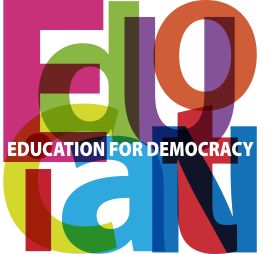About the project Competences for Democratic Culture and Intercultural Dialogue
For the Council of Europe, education has several purposes: preparation for the labour market – what we mostly hear about in public debate – but equally preparation for democratic citizenship, personal development, and the development of a broad, advanced knowledge base. For democracy to be a key mission of education, we need to be able to indicate the kind of competence students should develop at different levels of formal education.
This is the starting point for a new Council of Europe project. The initiative came from Andorra during its Chairmanship of the Committee of Ministers and since December 2013 the project has been developed by an international and interdisciplinary expert group. The mandate is to develop non-prescriptive guidelines and descriptors for competence for democratic culture and intercultural dialogue that national authorities and education institutions can use and adapt as they see fit. When we think of democracy, we often think of parliaments and constitutions, institutions and laws. However, these will not function unless they build on democratic culture: a set of attitudes and behaviours that emphasize dialogue and cooperation, solving conflicts by peaceful means, and active participation in public space.
A modern democracy cannot function unless it is able and willing to engage in intercultural dialogue, and intercultural dialogue is difficult to imagine without democratic culture. It would therefore be unhelpful to treat democracy and intercultural dialogue separately. The group has so far agreed on four main categories of competence: values; knowledge and critical understanding; attitudes; and skills. It is also discussing the components that go into each category. Random examples would be valuing other human beings, human dignity and human rights; civic-mindedness; analytical and critical thinking skills; and knowledge and critical understanding of politics, law and human rights.
The results will need to be acceptable to the 50 States party to the European Cultural Convention. The challenge of the task may be illustrated by the discussion the group is having on participation. Schools and universities are sometimes criticized for being too theoretical and not providing students with competences needed for “real life”. Participation is integral to democratic culture and therefore, in the view of many members of the group, of democratic competence. However, other members maintain that including participation could endanger the project since several societies are weary of what they view as political activism in schools and universities.
By the end of 2015, the group aims to establish the categories and components and to develop descriptors (i.e., statements or descriptions of what a person is able to do if they have mastered a particular competence). These descriptors are being formulated using the language of learning outcomes and, in a second phase of the project, they will be scaled at different levels of proficiency and assigned to different levels of education (e.g., primary, secondary or higher education).
Defining competence for democracy and intercultural dialogue is challenging. It is also essential if we are to develop the quality education that will help give us the kind of society in which we would like our children and grandchildren to live and thrive.
By Sjur Bergan, Head of the Education Department, Directorate of Democratic Citizenship and Participation
Directorate General II Democracy, Council of Europe



